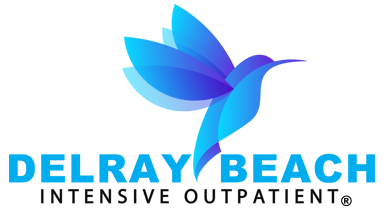One of the most well studied and frequently applied methods of treating addiction is that of cognitive behavioral therapy, or CBT, which is one of the foundations of the therapeutic program we offer here at Delray Beach IOP.
Along with addiction, cognitive behavioral therapy is also used to treat depression, anxiety, post-traumatic stress disorder, attention deficit disorder, bipolar disorder, obsessive compulsive disorder, eating disorders, and borderline personality disorder. All of these disorders frequently exist comorbidly with addiction and can be addressed with them in tandem in our comprehensive treatment program, paving the way for better overall mental health.
Developed by Aaron T. Beck based on principles of behaviorism in the 1950s and 60s, this form of therapy works to change behavior by aiming to change our thoughts themselves—namely, the maladaptive and distorted thoughts, beliefs, and attitudes that underlie many mental illnesses, including substance abuse.
A therapist will challenge these thoughts by pointing out objective evidence to the patient that these toxic beliefs might be false, or at least not as fully and irrevocably true as a patient might be tempted to believe. For example, a patient who believes that drugs or alcohol helps them to function better might be challenged by a therapist who presents empirical evidence of the many ways that it is not actually helping them, and is in fact throwing their life into a state of disarray.
The therapist will also help them by suggesting pleasant activities that they can do in the place of using substances, introducing them to healthier coping mechanisms they can use to manage any negative thoughts and emotions instead and more adaptive thoughts, beliefs, and attitudes that they can make an effort to foster.
They can also help a patient learn to understand and anticipate their triggers, so that those patients can make plans in advance to use a healthier coping mechanism, improving their ability to problem solve and giving them increased power to regulate their own emotions.
More action-oriented and problem-oriented than traditional forms of psychotherapy, cognitive behavioral therapy can also involve behavioral experiments, where patients try different behavioral strategies that are assigned by their therapist to find out which one works best for them.
CBT might also include exposure therapy, a practice in which patients revisit their traumatic memories and experiences in a safe environment with their therapist and work through any emotions that might arise. Eventually, the memories will lose their power, and patients will not be as overtaken by emotions if something triggers those memories in a different setting, and will be armed with coping mechanisms even if they do.
Cognitive behavioral therapy is just one of the many tools in our arsenal here at Delray Beach Intensive Outpatient, which also offers more traditional analytic forms of therapy and activities designed to foster patients’ holistic wellness, such as yoga and horseback riding. But it is a pretty important one in that it provides patients with a foundation of new, more positive ways of thinking and behaving upon which they can build the rest of their recovery.
To learn more about cognitive behavioral therapy and the many other forms of substance abuse treatment we offer here at Delray Beach IOP, call us today at 833.637.033. There’s no time like the present to start preparing for a better tomorrow.
